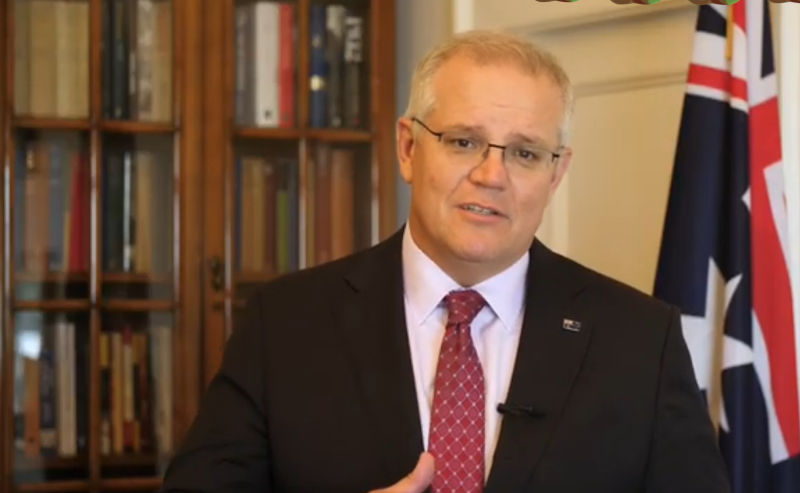Morrison and Japan's new rightist religions
August 3, 2022
_Japan’s New Religions are becoming an international problem.
_
The excesses of the so-called Unification Church, born in Korea but which quickly became firmly established in Japan and the United States, led to recent assassination of Japan’s former prime minister, Shinzo Abe, by the son of a woman fleeced by the Church.
Now we have a Shintoist outfit which calls itself World Mate and with a subsidiary which calls itself World Support for Development. It was able to lure Scot Morrison from his parliamentary duties in Canberra to join a group of other wannabe, some well-known, world political leaders to talk about ‘How Japan and the Indo-Pacific Region will fare in a Changing World’.
The meeting sold out to an assembly of believers in the luxury Daiba Hilton Hotel at an expensive 5000 - 8000 yen (close to 50-80 dollars) for a three hour seat. I saved some money by being refused a seat.
Both the Shinto group and its leader, Haruhisa Handa, have complicated backgrounds and like often to change their names. The group started off in 1984 as Cosmo Mate, then Powerful Cosmo Mate and finally ended up as World Mate in 1994.
(The strange use of the word ‘mate’ presumably is a result of Handa - then called Toshu Fukami - having spent time trying to do business in Australia during the eighties.)
It has relied on the usual New Religion techniques of promising believers a place in heaven and freedom from bad karma through generous donations and purchases of ‘spiritual goods.’
Like other New Religions it relies very much on being able to marshal supporters to vote for favoured politicians. Some are progressive, but most are conservative.
In its struggle to persuade the bureaucracy to grant it tax free status as a religion it is also said to have relied on donations to veteran conservative politician, Hakubun Shimomura, when he held posts monitoring the New Religions.
Handa also finds the funds to pay for regular large half page Shintoist messages in mainstream media preaching the spiritual qualities of fire.
Despite his beliefs in some weird Shinto customs and self-made doctrines (that he is both man and woman, for example) it could be noted he claims honorary doctorates from the University of Western Australia, Curtin University, and Edith Cowan University in Western Australia.


